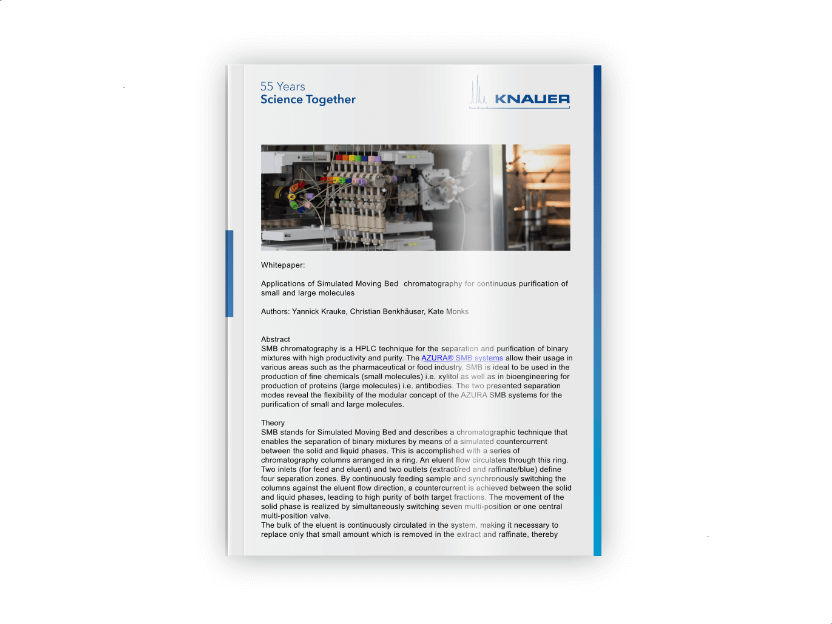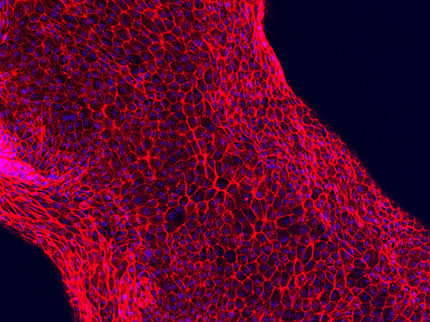Learning from the mussel, scientists create a biologically active titanium surface
titanium is used medically in applications such as artificial joints and dental implants. While it is strong and is not harmful to tissues, the metal lacks some of the beneficial biological properties of natural tissues such as bones and natural teeth. Now, based on insights from mussels--which are able to attach themselves very tightly to even metallic surfaces due to special proteins found in their byssal threads--scientists from RIKEN have successfully attached a biologically active molecule to a titanium surface, paving the way for implants that can be more biologically beneficial.
The work began from earlier discoveries that mussels can attach to smooth surfaces so effectively thanks to a protein, L-DOPA, which is known to be able to bind very strongly to smooth surfaces such as rocks, ceramics, or metals (Figure 1). Interestingly, the same protein functions in humans as a precursor to dopamine, and is used as a treatment for Parkinson's disease.
According to Chen Zhang of the RIKEN Nano Medical Engineering Laboratory, the first author of the paper published in Angewandte Chemie, "We thought it would be interesting to try to use various techniques to attach a biologically active protein--in our case we chose insulin-like growth factor-1, a promoter of cell proliferation--to a titanium surface like those used in implants" (Figure 2).
Using a combination of recombinant DNA technology and treatment with tyrosinase, they were able to create a hybrid protein that contained active parts of both the growth factor and L-DOPA. Tests showed that the proteins were able to fold normally, and further experiments in cell cultures demonstrated that the IGF-1 was still functioning normally. Thanks to the incorporation of the L-DOPA, the team was able to confirm that the proteins bound strongly to the titanium surface, and remained attached even when the metal was washed with phosphate-buffered saline, a water-based solution. Zhang says, "This is similar to the powerful properties of mussel adhesive, which can remain fixed to metallic materials even underwater."
According to Yoshihiro Ito, Team Leader of the Emergent Bioengineering Research Team of the RIKEN Center for Emergent Matter Science, "We are very excited by this finding, because the modification process is a universal one that could be used with other proteins. It could allow us to prepare new cell-growth enhancing materials, with potential applications in cell culture systems and regenerative medicine. And it is particularly interesting that this is an example of biomimetics, where nature can teach us new ways to do things. The mussel has given us insights that could be used to allow us to live healthier lives."
Original publication
Most read news
Other news from the department science

Get the life science industry in your inbox
By submitting this form you agree that LUMITOS AG will send you the newsletter(s) selected above by email. Your data will not be passed on to third parties. Your data will be stored and processed in accordance with our data protection regulations. LUMITOS may contact you by email for the purpose of advertising or market and opinion surveys. You can revoke your consent at any time without giving reasons to LUMITOS AG, Ernst-Augustin-Str. 2, 12489 Berlin, Germany or by e-mail at revoke@lumitos.com with effect for the future. In addition, each email contains a link to unsubscribe from the corresponding newsletter.
Most read news
More news from our other portals
Last viewed contents
2-Hydroxyglutaricaciduria
United_States_Public_Health_Service
T-2_mycotoxin

How to save 80% costs of continuous small molecule and biomolecule purification - Simulated moving bed chromatography (SMBC) for higher productivity and significantly lower costs
Midwest_Motorcycle_Alcoholics_Anonymous_Convention
MorphoSys Acquires Biogenesis Group in U.K. and U.S.A. - Acquisitions Position MorphoSys within Top 5 of European Research Antibody Suppliers
Median_lethal_dose



















































